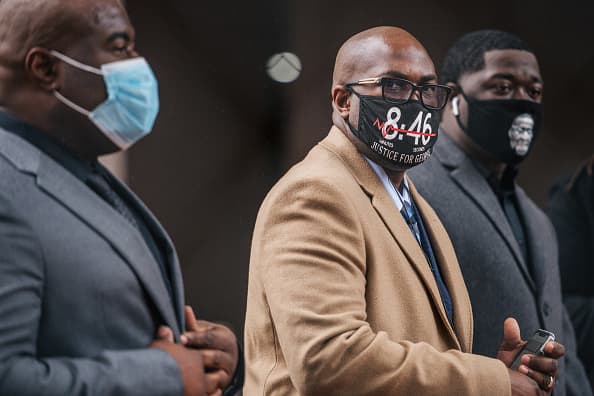
Rodney Floyd and Philonise Floyd, brothers of George Floyd, and Brandon Williams, nephew of George Floyd, check in at a security entrance at the Hennepin County Government Center on April 9, 2021 in Minneapolis, Minnesota.
Brandon Bell | Getty Images News | Getty Images
President Joe Biden will host George Floyd’s family at the White House on Tuesday, an administration official has confirmed to CNBC.
The visit marks the one-year anniversary of Floyd’s death, which triggered international protests against police brutality and racism in the criminal justice system.
Floyd, a 46-year-old Black man, died after former Minneapolis police officer Derek Chauvin held his knee on Floyd’s neck for about nine minutes.
Chauvin was found guilty of murder and manslaughter in April. His sentencing date is set for June.
The Floyd family’s visit to the White House comes as lawmakers attempt to create bipartisan legislation on police reform that could pass through both chambers of Congress.
The House passed the George Floyd Justice in Policing Act in March. The police reform bill seeks to ban chokeholds, carotid holds and no-knock warrants as well as end qualified immunity.
However, lawmakers have struggled to find a compromise that can win enough support in the evenly divided Senate.
Congress is set to miss the president’s deadline to pass the legislation by the anniversary of Floyd’s death. At least 10 Senate Republicans are needed for the bill’s passage due to the chamber’s filibuster rule.
“It would be a contribution to rebuilding trust in communities,” White House press secretary Jen Psaki said Friday with respect to the bill’s potential passage. “Obviously, there’s more that needs to be done beyond that; that’s not the only step — far from it.”
A point of contention in the negotiations has been on qualified immunity, which makes it difficult to sue individual officers.
Ten House Democrats are pushing congressional leaders not to scrap the provision seeking to end qualified immunity. But some GOP senators are concerned that ending it would make officers and departments vulnerable to a rash of lawsuits.




